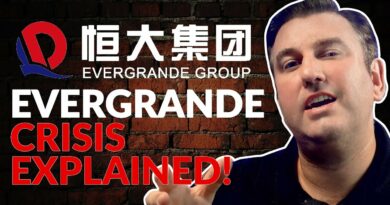Founder of China’s Evergrande Group Fined $47 Million Yuan for Falsifying $78 Billion Revenue
China Evergrande Group, the embattled developer at the epicenter of China’s real estate turmoil, has been accused of inflating its revenue by more than $78 billion in the two years preceding its collapse, according to the China Securities Regulatory Commission (CSRC).
The CSRC disclosed that Evergrande’s principal onshore entity, Hengda Real Estate Group, artificially boosted its income by approximately 214 billion yuan in 2019 and a staggering 350 billion yuan in 2020. These figures were obtained by recognizing sales prematurely, as highlighted in a filing released Monday by Evergrande, citing the CSRC’s notice.
Founder and former chairman Hui Ka Yan has been squarely blamed by the CSRC for instructing personnel to engage in this deceptive practice, with the regulator deeming his actions as particularly egregious. Hui, in his capacity as supervisor, allegedly utilized fraudulent means to achieve these ends.
Furthermore, Hengda is accused of issuing bonds worth a combined 20.8 billion yuan based on these manipulated financial figures.
In response to the findings, Hui has been fined $47 million yuan for his role in the falsification of results and other purported violations, and has been barred for life from participating in capital market activities, according to the preliminary findings of the regulator. Hengda itself has incurred a fine of $4.18 billion yuan.
Former Chief Executive Officer Xia Haijun and Chief Financial Officer Pan Darong, along with other executives, have also faced penalties including fines and market bans.
These allegations represent a significant setback for Hui, once counted among Asia’s wealthiest magnates, overseeing a vast conglomerate spanning real estate to electric vehicles. Evergrande, one of China’s largest developers, expanded aggressively across the nation, accumulating substantial debt, before facing regulatory constraints on borrowing and a downturn exacerbated by the pandemic.
According to the CSRC, the inflated figures accounted for half of Hengda’s total revenue in 2019 and a staggering 79% in 2020. The regulator asserts that profits were similarly overstated by 63% and 87% respectively during these years. Hui is accused of delaying the publication of Hengda’s earnings reports, failure to disclose lawsuits, and defaulting on debt payments, further exacerbating the situation.
Hui has been under restrictive measures since September, with reports indicating that Xia and Pan were also subjected to similar constraints.
While no criminal charges have been made public against Hui, his current whereabouts remain unknown. It’s important to note that the measures taken by the CSRC are civil penalties.
Once Asia’s second-richest individual with a peak net worth of $42 billion in 2017, Hui has witnessed a precipitous decline in wealth, now estimated to be around $1 billion following Evergrande’s default in 2021. The company’s stock plummeted and trading was eventually suspended.
In January, a Hong Kong court issued a liquidation order against the group, marking a significant development in the ongoing real estate crisis.
In a parallel development, a luxurious Hong Kong mansion linked to Hui is up for sale. The property, located at 10E on Black’s Link in the esteemed Peak area, is currently open for bids until April 22, as announced by Savills Plc.
Hui and the other accused individuals have the opportunity to present their defenses before the imposed penalties take effect, as per the CSRC. However, Hengda has opted to waive this right, as indicated in the filing.
Information for this briefing was found via Caixin Global and the sources mentioned. The author has no securities or affiliations related to this organization. Not a recommendation to buy or sell. Always do additional research and consult a professional before purchasing a security. The author holds no licenses.




